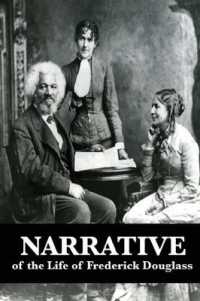- ホーム
- > 洋書
- > 英文書
- > Politics / International Relations
Full Description
In the past two decades, governance theories have arisen semi-independently across multiple disciplines. In law and regulation, planning, democratic theory, economics, public management, and international relations, among other disciplines, scholars have sought to describe new strategies of governing. As a result, the term 'governance' is one of the most frequently used social science concepts in the world. No single theory encompasses this diverse body of work, but rather multiple theories with different aims and perspectives. The Handbook on Theories of Governance collects these theories of governance together as an analytical resource for scholars, students and practitioners. The handbook advances a deeper theoretical understanding of governance processes while illuminating the interdisciplinary foundations of the field. By reviewing key theoretical concepts, the handbook provides a basic conceptual toolkit for analyzing contemporary governance and offers important insights into how governance research contributes to social science theory development. By canvassing the different forms of governance, the chapters also reveal the diversity of contemporary governing practices. An epilogue identifies common themes across the chapters and points to opportunities for future research. In our increasingly complex, fragmented and dynamic society, this Handbook is a key resource for those who seek to deepen or broaden their theoretical understanding of governance. It will be a powerful aid for scholars, students and practitioners who wish to gauge the theoretical depth and breadth of governance studies.Contributors include: C. Ansell, I. Bache, I. Bartle, P. Blomqvist, J.N. Brass, J.M. Bryson, G. Bullock, J. de Fine Licht, J. Edelenbos, M. Egeberg, L. Ericksson, M. Flinders, A. Gash, S. Geertman, A.K. Gerlak, L. Gerrits, R. Glennon, A. Gornitzka, S. Griggs, J. Hartley, T. Hartmann, M. Haugaard, M. Haubrich-Seco, T. Heikkila, R. Holahan, D. Howarth, M. Isailovic, B. Jessop, S.I. Karlsson-Vinkhuyzen, R. Keast, P. Kenis, A. Klinke, C. Koliba, M. Lubell, W. Mattli, R. Mayntz, J.W. Meek, D. Naurin, K. Nielsen, P.O. OEberg, S. Osborne, D. Panke, Y. Papadopoulos, P. Pattberg, B.G. Peters, J. Pierre, K.S. Quick, Z. Radnor, O. Renn, M.L. Rhodes, K. Sahlin, J. Seddon, E. Sorensen, T. Steelman, K. Stephenson, S. Talesh, L. Taylor, J. Torfing, P. Triantafillou, J. Trondal, N. Turnbull, I. van Meerkerk, J. Yasuda
Contents
ContentsIntroduction: Theories of GovernanceChristopher Ansell and Jacob Torfing1. Collective Action TheoryRobert Holahan and Mark Lubell2. Organization TheoryMorten Egeberg, Ase Gornitzka and Jarle Trondal3. Public Management TheoryZoe Radnor, Stephen Osborne and Russ Glennon 4. Planning TheoryThomas Hartmann and Stan Geertman5. State Theory Bob Jessop6. Democratic TheoryAndreas Klinke7. Public Law and Regulatory TheoryShauhin Talesh 8. Development TheoryJennifer N. Brass9. International Relations TheoryKerstin SahlinPART II BASIC THEORETICAL CONCEPTS10. HeterarchyKaren Stephenson11. NetworkPatrick Kenis12. Public ParticipationKathryn S. Quick and John M. Bryson13. RepresentationLucy Taylor14. DeliberationPer Ola OEberg15. PowerMark Haugaard16. LegitimacySylvia I. Karlsson-Vinkhuyzen 17. AccountabilityYannis Papadopoulos 18. Transparency Jenny de Fine Licht and Daniel Naurin19. LearningTanya Heikkila and Andrea K. Gerlak20. InnovationJean Hartley and Jacob Torfing21. RiskOrtwin Renn and Andreas Klinke22. SteeringRenate Mayntz23. Soft and Hard Governing ToolsPaula Blomqvist24. Information-based Governance TheoryGraham Bullock25. Discourse TheorySteven Griggs and David Howarth26. Institutional TheoryB. Guy Peters27. Public Choice TheoryLina Ericksson28. Economic TheoryKlaus Nielsen 29. GovernmentalityPeter Triantafillou30. Complexity Theory and Systems AnalysisChristopher Koliba, Lasse Gerrits, Mary Lee Rhodes and Jack W. Meek31. Narrative and Interpretative TheoryNick Turnbull32. PragmatismChristopher Ansell33. Normative TheoryJurian Edelenbos and Ingmar van Meerkerk34. Democratic Network GovernanceEva Sorensen35. Regulatory GovernanceJohn Yasuda36. Network GovernanceRobyn Keast37. Collaborative GovernanceAlison Gash38. Private GovernanceMarija Isailovic and Philipp Pattberg39. Urban and Regional GovernanceJon Pierre40. Multi-level GovernanceIan Bach, Ian Bartle and Matthew Flinders41. EU and Supranational GovernanceDiana Panke and Miguel Haubrich-Seco42. Transnational Economic GovernanceWalter Mattli and Jack Seddon43. MetagovernanceJacob Torfing44. Adaptive GovernanceToddi SteelmanEpilogue: The Current Status and Future Development of Governance TheoriesChristopher Ansell and Jacob TorfingIndex







